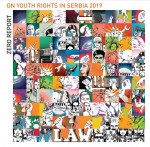Statement of principles relating to the treatment of persons deprived of their liberty in the context of the coronavirus disease (COVID-19) pandemic
The Coronavirus disease (COVID-19) pandemic has created extraordinary challenges for the authorities of all member States of the Council of Europe. There are specific and intense challenges for staff working in various places of deprivation of liberty, including police detention facilities, penitentiary institutions, immigration detention centres, psychiatric hospitals and social care homes, as well as in various newly-established facilities/zones where persons are placed in quarantine. Whilst acknowledging the clear imperative to take firm action to combat COVID-19, the CPT must remind all actors of the absolute nature of the prohibition of torture and inhuman or degrading treatment. Protective measures must never result in inhuman or degrading treatment of persons deprived of their liberty. In the CPT’s view, the following principles should be applied by all relevant authorities responsible for persons deprived of their liberty within the Council of Europe area.
1) The basic principle must be to take all possible action to protect the health and safety of all persons deprived of their liberty. Taking such action also contributes to preserving the health and safety of staff.
2) WHO guidelines on fighting the pandemic as well as national health and clinical guidelines consistent with international standards must be respected and implemented fully in all places of deprivation of liberty.
3) Staff availability should be reinforced, and staff should receive all professional support, health and safety protection as well as training necessary in order to be able to continue to fulfil their tasks in places of deprivation of liberty.
4) Any restrictive measure taken vis-à-vis persons deprived of their liberty to prevent the spread of COVID-19 should have a legal basis and be necessary, proportionate, respectful of human dignity and restricted in time. Persons deprived of their liberty should receive comprehensive information, in a language they understand, about any such measures.
5) As close personal contact encourages the spread of the virus, concerted efforts should be made by all relevant authorities to resort to alternatives to deprivation of liberty. Such an approach is imperative, in particular, in situations of overcrowding. Further, authorities should make greater use of alternatives to pre-trial detention; commutation of sentences, early release and probation; reassess the need to continue involuntary placement of psychiatric patients; discharge or release to community care, wherever appropriate, residents of social care homes; and refrain, to the maximum extent possible, from detaining migrants.
6) As regards the provision of health care, special attention will be required to the specific needs of detained persons with particular regard to vulnerable groups and/or at-risk groups, such older persons and persons with pre-existing medical conditions. This includes, inter alia, screening for COVID-19 and pathways to intensive care as required. Further, detained persons should receive additional psychological support from staff at this time.
7) While it is legitimate and reasonable to suspend nonessential activities, the fundamental rights of detained persons during the pandemic must be fully respected. This includes in particular the right to maintain adequate personal hygiene (including access to hot water and soap) and the right of daily access to the open air (of at least one hour). Further, any restrictions on contact with the outside world, including visits, should be compensated for by increased access to alternative means of communication (such as telephone or Voice-overInternet-Protocol communication).
8) In cases of isolation or placement in quarantine of a detained person who is infected or is suspected of being infected by the SARS-CoV-2 virus the person concerned should be provided with meaningful human contact every day.
9) Fundamental safeguards against the ill-treatment of persons in the custody of law enforcement officials (access to a lawyer, access to a doctor, notification of custody) must be fully respected in all circumstances and at all times. Precautionary measures (such as requiring persons with symptoms to wear protective masks) may be appropriate in some circumstances.
10) Monitoring by independent bodies, including National Preventive Mechanisms (NPMs) and the CPT, remains an essential safeguard against ill-treatment. States should continue to guarantee access for monitoring bodies to all places of detention, including places where persons are kept in quarantine. All monitoring bodies should however take every precaution to observe the ‘do no harm’ principle, in particular when dealing with older persons and persons with pre-existing medical conditions.









